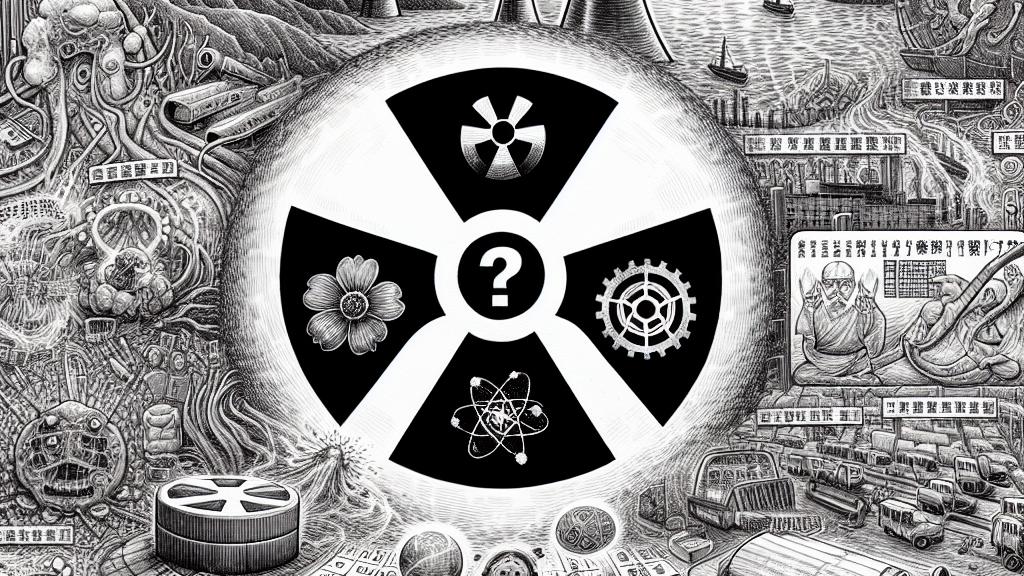Nuclear Power: Taiwan’s DPP Caught Between a Rock and a Hard Place!
Overview
- Taiwan is on track to phase out nuclear energy by 2025, leading to heightened energy security concerns.
- The DPP is feeling the pressure to reconsider its unwavering anti-nuclear policy amid changing political dynamics.
- Debates about environmental justice highlight the serious issues related to nuclear waste management and indigenous rights.

Taiwan's Nuclear Energy Context
In Taiwan, the Democratic Progressive Party (DPP) has championed a nuclear-free energy policy since Tsai Ing-wen's administration, setting a clear goal to eliminate nuclear energy by 2025. This goal stems from safety concerns and a desire to position Taiwan as a leader in renewable energy. However, with the shutdown of one of the last nuclear reactors, the country faces critical questions about its energy future and supply stability. Taiwan currently imports over 90% of its energy, and with global tensions affecting energy prices, the reliability of these imports has become more uncertain, raising alarm among energy experts and citizens alike.
Political Pressures and Possible Policy Shifts
The recent change in administration to President Lai Ching-te has led to mounting pressure within the DPP to reassess the nuclear-free policy. Influential voices in the new government, including industry leaders and energy experts, have begun to advocate for a reconsideration of nuclear power as a pragmatic energy source. As discussions about potential policy shifts intensify, the DPP must navigate these pressures carefully, weighing the benefits of energy independence against the party's long-standing commitments. This internal conflict reflects the broader challenges faced by governments in reconciling ideological stances with practical energy needs.
Environmental Justice and Nuclear Waste Issues
Environmental justice presents a significant hurdle for the DPP, particularly concerning the management of nuclear waste on Orchid Island, home to the indigenous Tao community. While the DPP markets itself as a 'green party,' its failure to relocate nuclear waste has led to serious ethical questions regarding its commitment to environmental justice and indigenous rights. The Tao have long fought against the storage of nuclear waste on their ancestral land, arguing that it poses both health and cultural threats. This situation highlights the critical need for the DPP to establish a more comprehensive approach to waste management, acknowledging the historical injustices faced by marginalized communities.
Engaging the Public in Energy Discussions
With Taiwan's energy policy facing pivotal changes, the introduction of public discussions or referendums about nuclear power could be a beneficial way to engage citizens directly in the decision-making process. By fostering inclusive dialogues on the future of energy in Taiwan, the DPP may cultivate a more informed electorate and establish a consensus-driven approach to energy policy. This could lead to innovative solutions that balance nuclear energy's reliability with the growth of renewables. Ultimately, how Taiwan addresses these discussions will be crucial in shaping its energy landscape and maintaining public trust in its enviro-economic governance.
Future Directions in Energy Policy
Looking ahead, the DPP's navigational choices regarding nuclear power could define its electoral prospects and democratic integrity. Balancing safety, reliability, and environmental responsibility is a substantial challenge that requires innovative strategies and genuine public engagement. As new technologies and alternatives emerge, such as small modular reactors and advanced renewables, the DPP has a unique opportunity to redefine the discourse around nuclear energy in Taiwan. Through transparent, open discussions that address both public safety and environmental justice, Taiwan can set a precedent for responsible energy governance in the face of evolving global challenges.

Loading...